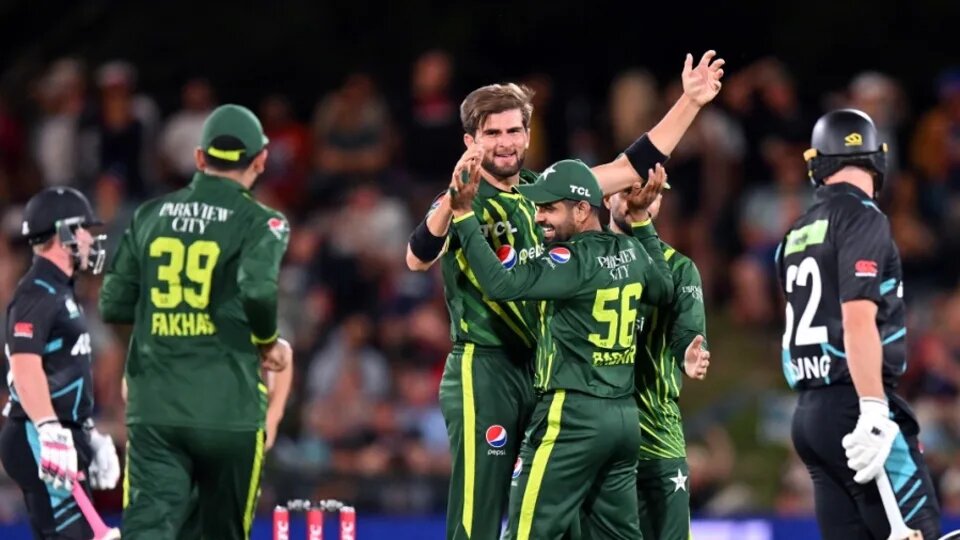It truly is a picture that speaks a thousand words. PCB chairman and Interior Minister Mohsin Naqvi – one of the most influential men in the country – shaking hands with Shaheen Afridi, the man he freshly deposed as Pakistan captain. Naqvi’s posture reveals the defensiveness Shaheen’s dissatisfaction with events has put even someone as powerful as Naqvi under; the left hand placatingly placed on Afridi’s arm as the chairman leans forward. Afridi’s own left hand hangs limply by his side, only the hint of a smile on his face. The broadest grin actually belongs to Mohammad Amir, inexplicably in the frame, eyes locked firmly on the handshake itself.
And this was the picture the PCB put out themselves, so it was presumably as good as it got. Afridi, as ESPNcricinfo had reported later, was not exactly left impressed.
If the manner in which Babar Azam stepped down as Pakistan captain at the tail-end of last year showed up administrative ineptitude, how his return has been managed can only be described as a spectacular act of one-upmanship. For weeks, there had been hints of Afridi’s impending departure – a whisper to a journalist here, a refusal to back him there. Like leaks about the latest iPhone, everyone knew what was coming. And then, like a retro feature being brought back to a new device, Babar was back.
Replacing captains is never a happy task, but few specialise in leaving behind a mess Pakistan cricket does in such circumstances. In some ways, it feels very 1990s, a time most people recall for its technological innovation and economic prosperity. In Pakistan, it’s often associated with the backsliding of nascent democratic norms and Wasim Akram and Waqar Younis falling out over the captaincy. It took that pair the best part of three decades to properly mend fences, and though Babar and Afridi may find ways to work through all they have experienced sooner, it’s not going to be thanks to the board that has a duty of care towards them.
This isn’t the first Pakistan administration to have found a way to drive a wedge between its biggest stars, mind you. The very structure of the PCB, captive to political interests, means reform and progress at the board remains restricted to the government of the day ensuring they retain administrative control, and often unroll steps taken by its predecessor. It is no coincidence the PCB feels almost uniquely dysfunctional at a time when the Pakistan government is in maximum disarray. The four chairmen the PCB has seen the last two years is matched by four prime ministers in that period, which only further makes the point.
The way Babar was removed, compelled to issue a statement of resignation, means he will feel he has a right to ensure a repeat of that does not occur. Only the churlish would begrudge a man using the rare leverage a player gains over a board in Pakistan cricket
To recap, Babar was unceremoniously dumped as captain by an administration that had no authority to take that decision. Afridi became T20 captain in a World Cup year, and was given a somewhat experimental squad for a five-match T20I series in New Zealand, which Pakistan lost 4-1. The PCB chair changed hands, and Afridi, after weeks of feverish speculation, was dropped, with Babar brought back. No one at the board had communication with Afridi in a way that satisfied him, and on the day he was replaced, the PCB put out a statement on his behalf in which he appeared to accept his sacking.
Afridi never spoke the words attributed to him, and threatened to publicly deny them, prompting the chairman to make a dash for Kakul, the military camp he had arranged for the team to train at so they could, among other things, hit bigger sixes. They shook hands, superficially covering up deep-seated issues that remain.


